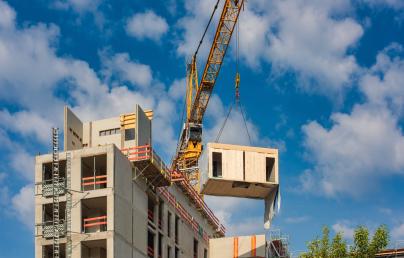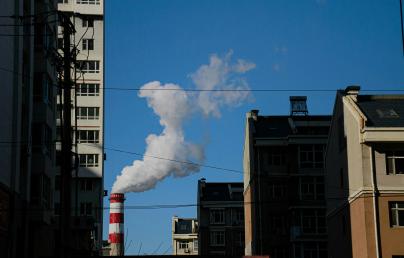
Boosting the Renovation Wave with Modular Industrialized Renovation Kits: mapping challenges, barriers and solution strategies
Boosting the Renovation Wave with Modular Industrialized Renovation Kits: mapping challenges, barriers and solution strategies
With an insufficient rate of existing building renovation, there is need to step up the pace of building renovation to achieve European Union (EU) climate goals for 2050. Industrialization and related technological innovations, especially Zero Energy Renovation Kits, are at the core of boosting the Renovation Wave. This positioning paper reports on the results of a workshop at the Sustainable Places 2021 Conference by six Horizon 2020 projects, assessing the challenges and barriers to develop, adopt and/or implement Zero Energy Renovation Kits.
Successfully applied in other industries, the application of modularity and construction 4.0 strategies are seen as key to step up the pace of building renovation to achieve European Union (EU) climate goals for 2050. This led to the development of Zero Energy Renovation Kits addressing the need for efficient, sustainable and customizable deep-renovation solutions. The European innovation program Horizon 2020 supports various projects in developing market-ready Zero Energy Renovation Kits.
As a result, 32 technological, market, financial, legal, and institutional challenges and barriers were identified. During this workshop, strategies were also discussed that could allow overcoming the identified challenges and barriers. This paper presents a coherent framework, which maps the intervention strategies against the challenges and barriers. The position paper concludes by addressing the implications for innovation managers, decision-makers and policymakers to sustain the market for Zero Energy Renovation Kits. Finally, further research opportunities are highlighted.
Innovative Building Envelop Kits should adhere to the following preconditions:
- Speeding up the renovation time, avoiding disturbance for occupants as much as possible, i.e. support user-centric deeprenovation approaches
- Make the renovation more cost-effective
- Providing a higher performance and resource efficiency, both in energy and material
- The potential of re-use of building materials and urban mining
Effective ways for quality insurance
Towards further energy efficiency and decarbonisation of the EU building stock, modularity and industrialisation of Zero Energy Renovation Kits (Construction 4.0) for the deep renovation market are key strategies to improve both production and resource efficiency in constructing and retrofitting housing. Modularity in itself is a concept that is observed as a major beneficiary in numerous industries, but relatively new to the deep-renovation market.
Modularity is seen as a key strategy to improve both production and resource efficiency in constructing and retrofitting housing. Modular product systems are developed with an one-to-one mapping between functions and physical technical subsystems with standardised interfaces. The use of Construction 4.0 principles, such as point clouds, Building Information Models (BIMs) annex Digital Twins or material passports etcetera, could further advance modular and industrialized Zero Energy Renovation Kits.
sp2021_positioning_paper_boosting_the_renovation_wave_with_modular_industrialized_renovation_kits.pdf
English (2.85 MB - PDF)
